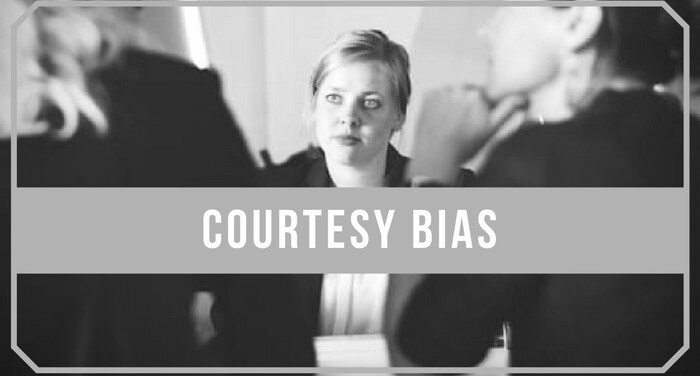Introduction
In our daily lives, we often strive to be polite and considerate towards others. However, this natural inclination towards courtesy can sometimes lead us astray when it comes to making rational decisions. This phenomenon, known as the Courtesy Bias, is a mental model deeply rooted in human psychology. It influences our decision-making processes by encouraging us to prioritize social harmony and avoid conflict over objective reasoning and self-interest. In this blog post, we will delve into the concept of the Courtesy Bias, explore its prevalence in various contexts, examine the underlying biases that contribute to it, and provide practical strategies to counteract its effects.
Defining the Courtesy Bias and Its Relevance
The Courtesy Bias, also referred to as the Politeness Principle or the Politeness Bias, is a cognitive tendency that influences our decision-making processes. It occurs when individuals or groups prioritize maintaining social harmony and avoiding confrontation over making objective and rational choices. While politeness and courtesy are important in fostering healthy relationships, the Courtesy Bias can hinder our ability to make optimal decisions that align with our best interests.
The prevalence of the Courtesy Bias in our day-to-day lives is evident in a multitude of contexts, including personal life decisions, business scenarios, and public policy-making. Let’s explore three distinct examples that demonstrate how individuals, organizations, or even governments can fall prey to this bias, leading to irrational decisions that contradict their own best interests.
Personal Life Decisions: Sarah and the Group Dinner
Imagine Sarah, a person who enjoys trying new restaurants and cuisines. One evening, Sarah is invited to a group dinner where the majority of participants express a preference for Italian cuisine, even though Sarah is not particularly fond of it. Despite her reservations, Sarah goes along with the majority’s choice to maintain social harmony. In this scenario, the Courtesy Bias compels Sarah to prioritize the group’s desires over her own preferences, potentially resulting in a suboptimal dining experience for her.
Business Scenarios: Groupthink in Decision-Making
In the business world, the Courtesy Bias can manifest as a variant of groupthink, where individuals within a team prioritize maintaining a positive atmosphere over critically analyzing ideas or challenging the status quo. By suppressing dissenting opinions and alternative perspectives, the Courtesy Bias stifles innovation and leads to suboptimal decisions. This phenomenon has been observed in numerous corporate scandals and failed projects where employees hesitated to voice concerns due to the fear of disrupting group harmony.
Public Policy-Making: The Tragedy of the Commons
The Courtesy Bias can also impact public policy-making, as demonstrated by the Tragedy of the Commons. This concept refers to a scenario where individuals, motivated by their desire to avoid conflict, exploit shared resources beyond sustainable levels, leading to their depletion or degradation. This bias can cause decision-makers to prioritize short-term interests and avoid implementing necessary regulations or policies to protect common resources. The result is a suboptimal outcome that negatively impacts the collective welfare.
Contributing Biases and Psychological Underpinnings
The Courtesy Bias is closely intertwined with various other cognitive biases and psychological factors that influence our decision-making. Understanding these underlying biases can shed light on why we succumb to the Courtesy Bias in the first place. Here are a few key contributors:
Confirmation Bias: Our tendency to seek and interpret information that confirms our existing beliefs. In the context of the Courtesy Bias, we may selectively favor information that aligns with our desire to maintain harmony, disregarding contrary evidence.
Fear of Rejection: Our innate fear of social exclusion and rejection drives us to conform to social norms and avoid challenging others’ opinions, even when it goes against our best interests. This fear often amplifies the Courtesy Bias.
Loss Aversion: Our inclination to strongly prefer avoiding losses over acquiring gains. In decision-making situations, this bias can make us overly cautious, choosing to maintain the status quo rather than risk conflict or potential negative outcomes.
Identifying and Countering Courtesy Bias
To avoid falling into the trap of the Courtesy Bias, it is crucial to recognize its presence and adopt strategies that promote objective decision-making. Here are some practical tips to help identify and counter this bias
Raise Self-Awareness: Cultivate mindfulness and introspection to become more aware of your own biases and inclinations towards courtesy. Recognize that prioritizing social harmony should not come at the expense of your own well-being or rational decision-making.
Encourage Dissent: Foster an environment that encourages open dialogue, diverse perspectives, and constructive dissent. Actively seek out alternative viewpoints and challenge your own assumptions. Encourage others to share their thoughts, even if they differ from the majority opinion.
Utilize Decision-Making Tools: Use decision-making frameworks, such as cost-benefit analysis, SWOT analysis, or scenario planning, to evaluate options objectively. These tools provide a structured approach to consider various factors and mitigate the influence of subjective biases.
Seek Feedback: Actively solicit feedback from trusted individuals who can provide honest opinions and insights. Surrounding yourself with diverse perspectives can help counteract the Courtesy Bias by exposing you to alternative viewpoints and potential blind spots.
Conclusion
The Courtesy Bias, deeply rooted in human psychology, can significantly impact our decision-making processes. By prioritizing social harmony and avoiding conflict, we may inadvertently make choices that contradict our own best interests. However, by understanding the underlying biases that contribute to the Courtesy Bias and employing practical strategies, we can strive for more objective decision-making.
Awareness of the Courtesy Bias and its potential pitfalls is paramount in personal life, business endeavors, and public policy-making. By actively challenging the status quo, fostering dissent, and utilizing decision-making tools, we can navigate this mental trap and make decisions that align with our true best interests. Let us embrace a balanced approach that values courtesy without sacrificing rationality, ultimately leading to better outcomes for ourselves and society as a whole.
